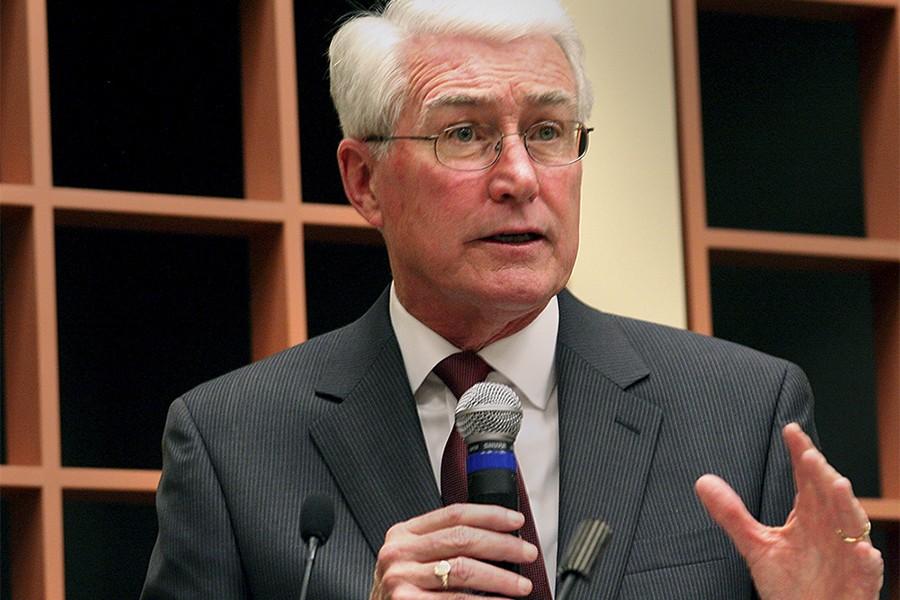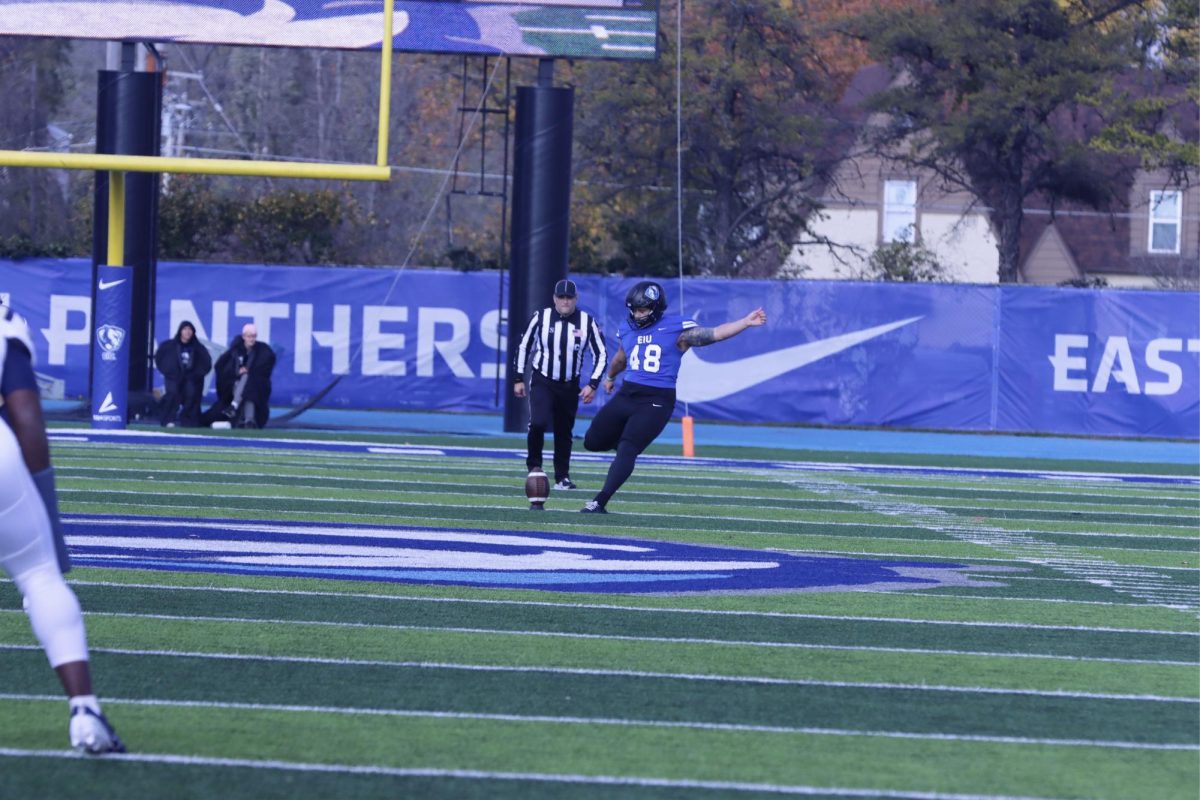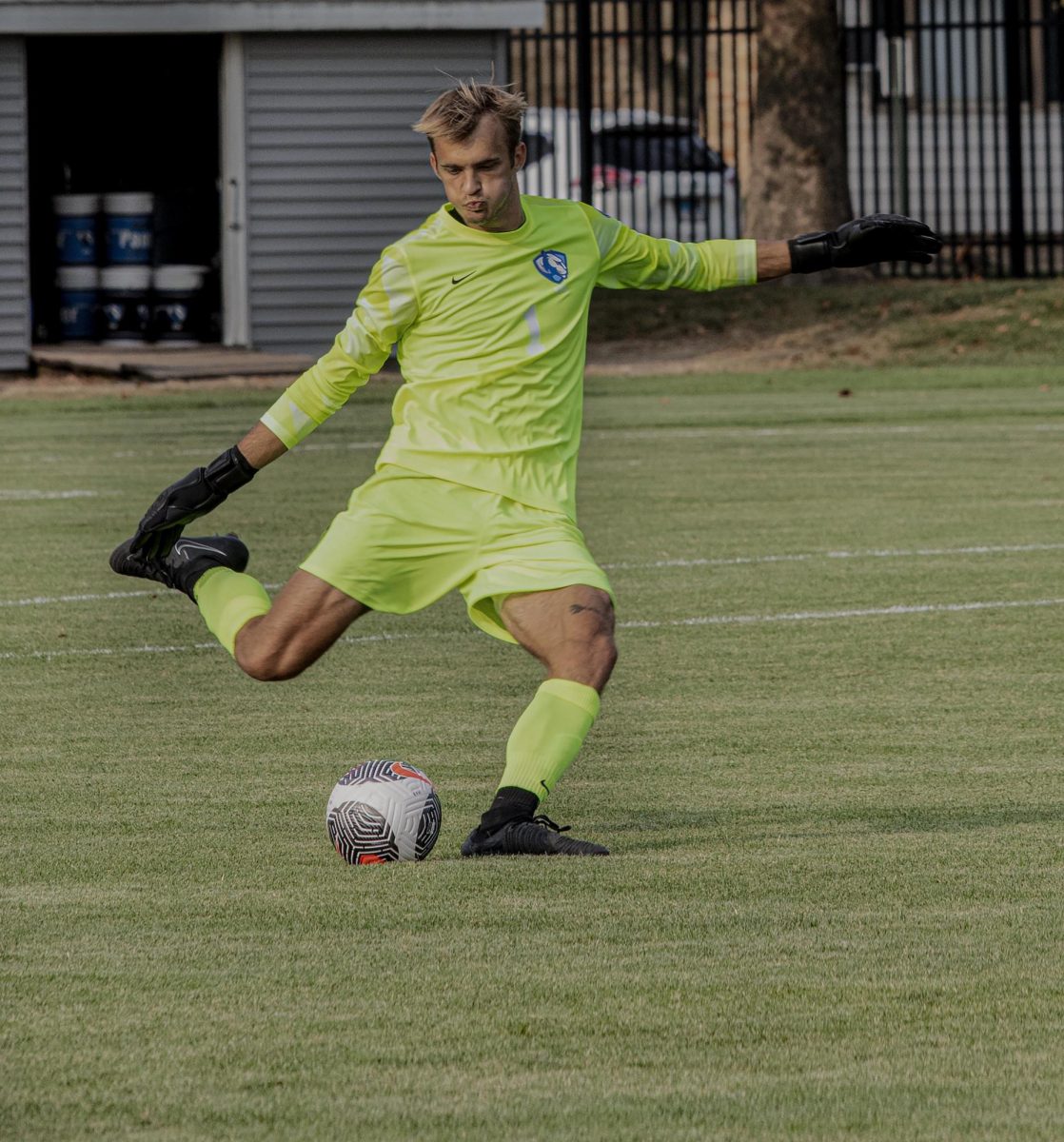Faculty upset about Electronic Writing Portfolio remediation
Tim Taylor said he thinks the Electronic Writing Portfolio should not have a remediation component.
Taylor, director of the Writing Center and assistant professor of composition/rhetoric, said large-scale writing portfolios like Eastern’s should focus on assessment of writing across Eastern’s curriculum, not evaluation of individual students.
“While most everyone is happy that the EWP is becoming electronic so students don’t have to take their papers to Ninth Street Hall, many of us are concerned about this revision of the EWP because it goes against the spirit of strong writing assessment,” Taylor said.
Changes to the EWP went into effect Sept. 9, and the new system now includes a remediation portion.
The EWP document states, “Students whose first two submissions need improvement or are unsatisfactory will be required to take a diagnostic writing exam. Those who do not pass the exam with a minimal score will be required to complete a non-credit, one-semester-hour, small group/one-on-one writing tutorial.”
A subcommittee within the Committee for the Assessment of Student Learning is currently discussing details of the course and exam.
James Tidwell, chair of the journalism department, said the problem with the remedial part of the EWP is they haven’t come up with a system yet.
“Until I see what details are worked out, it’s kind of hard to even speculate,” he said.
Angela Vietto, associate professor of English, is concerned with who will be teaching the courses. As of now, that is unclear.
“I keep thinking since I don’t know who’s going to be teaching the remedial course it might be (the English department),” she said. “And if it’s not us, I’d be interested to know how they decide who is going to do it and why.”
Taylor said a one-semester-hour tutorial would not effectively address serious issues for the long-term benefit of students.
“For people to become better writers, they need practice, encouragement and guidance throughout their college careers – from the first year to the senior year,” he said. “A series of tutorials can only help at a very small level.”
Assessment’s the point
Taylor said many colleges use writing portfolios to understand how general education curricula can improve.
“Instead of thinking about writing only from students’ end, we need to assess and improve how writing-intensive and (general education) classes are incorporating writing,” he said.
Taylor said many students and faculty see the EWP as just another hoop to jump through.
“At other colleges, EWPs are being used to showcase students’ best writing, to show future employers their strong work, and to make general education curricula more effective in challenging students to become stronger critical thinkers and writers,” he said.
When Vietto came to Eastern in 2000, the EWP was first being instituted.
“We were told – I remember very clearly being told – that this would not be used to re-evaluate individual students’ work,” she said. “The only reason that I think the EWP is OK is because I believed that, what I was being told then. Now, here we are eight years later, and we’re going to remediate students.”
Vietto said her understanding of assessment is for the university to look at what it’s doing and determine whether or not it needs to do a better job.
“Assessment is not supposed to be evaluation of individual students,” she said.
She said the university already has systems to evaluate students.
“We have grading. We have classes. We have curricular requirements,” Vietto said. “Why do we need to evaluate them through our assessment? Assessment is supposed to tell us whether we’re doing a good enough job or not, not . whether you’re doing a good enough job.”
Tidwell also thought the EWP was supposed to be for assessment.
“My thing is that the EWP’s supposed to assess writing not remediate students,” he said.
He said he doesn’t know if it can serve both functions.
Double jeopardy
Vietto said she also disagrees with requiring students to take remedial work based on their EWP submissions because if students aren’t writing at a passing level, they shouldn’t be passing their writing-intensive classes.
“The assumption behind this new remediation policy seems to be that the grades instructors give are meaningless – that we pass students whether or not they are writing at an acceptable level,” Vietto said. “That’s not what I see among the faculty here at Eastern. If – and this is a big if – but if there are problems with the way writing is being taught, we should begin by fixing those problems, not by making students who slip through the cracks take extra courses.”
If a student doesn’t pass English 1001 or 1002 with a grade of C or higher, that student has to repeat the course and pass it.
“Think about it: If you’re a student who has passed English 1001 and 1002, then passed two or three writing-intensive courses in your general education courses or your major – if you’ve passed all these classes, how fair would it be for CASL to tell you that based on the ratings on your EWP submissions you need to take a remedial writing course?” Vietto said. “And what does it say about the instructors who passed you?”
English professor John Allison said the remedial course puts students in double jeopardy. He said they pass a college course only to be told they have to take another.
“From a student perspective, I can imagine that having to take a new course even after passing a college-level writing course or a college-level class that includes writing is not an attractive process,” he said.
Allison said if students have passed the course, they should feel confident they passed.
“Why do we need this (remedial course) if students already have to earn a C in order to move along?” he said.
Allison said Eastern is a state and public university.
“Why should Eastern students be expected to jump through hoops on the basis of a set of standards that don’t apply to other state universities?” he said.
Richard Wandling, professor and chair of the political science department, said he was unsure on the topic of remediation of students as part of the EWP.
“The diagnostic test and remediation components of the new EWP may play a productive role to the extent that they correct genuinely bad writing,” he said.
He said he also wondered why a process was needed separate from the regular classroom to identify problem writing.
“If students are able to pass our classes, with many of them having a writing component, should we also have a separate process that says some of them are deficient in their ability to present their thoughts and ideas in writing?” he said.
However, Wandling said he expected the new remedial portion to have a minimal influence on the political science department.
“Unless I have missed something, our faculty will not be directly involved in the remediation process, and I expect political science students to fare well in the new EWP process,” he said.
A history of remediation
An anonymous survey conducted by CASL showed faculty support for remediation.
Vietto said she could guess what those faculty’s reasons might have been.
“There’s research that goes back to the 18th century that at Harvard in the 18th century the faculty were complaining about how the students didn’t write well enough,” she said. “So it doesn’t surprise me that faculty are unhappy with student writing and that they think something should be done about it.”
She said, though, that the university has writing-intensive classes for a reason, and if there’s a problem with writing, then that’s where the university should start to fix it.
Vietto said that she does think CASL was trying to respond to student concerns when making revisions and she thinks they did.
“I think that by making it electronic, not making students tromp to Ninth Street Hall, not making it so we have to get it from a specific class, that they were trying to respond to some student concern,” she said. “But it seems to me they’ve put in place new reasons for students to be concerned.”
Emily Zulz can be reached at 581-7942 or at eazulz@eiu.edu.


































































